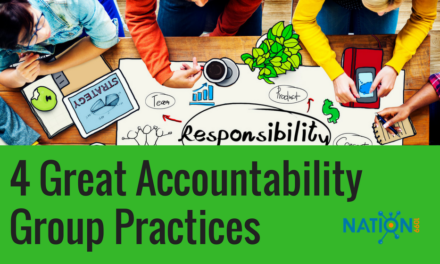A huge part of getting better projects as a freelancer is the nitty gritty of “getting out there” and “working hard.” These are actions we take and ways we interact with others.
However, to make significant progress in our careers, sometimes we need to turn the lens back on ourselves and examine what really isn’t working.
In this companion piece to our recent article on attracting new freelance clients, we will dig deep and be honest about the ways we may be sliding off track and how we can get ourselves moving in the right direction again toward getting better projects.
1. You have lost the motivation to self-start
I recently had the pleasure of interviewing the immensely talented Ilise Benun of the How Design podcast series. When we discussed the current state of the gig economy, she became very animated about the need for solopreneurs to take active ownership of their careers.
“The self employed must step up and take responsibility for ourselves,” Benun says. “We need to stop being passive and treating our clients like our employers. We need to be the boss of our own businesses and stop taking whatever comes along, which gets glorified and called ‘word of mouth’.”
Related reading: Running a Freelance Business Takes Purpose – 3 Questions To Help You Find It
Self-starting is a skill many people talk up and cram into the qualifications sections of generic job postings (along with “great people skills” and a “can-do attitude”). While being a self-starter is — in a vague sense — a good trait for any job, it is essential for independent contractors. As Robert McGuire likes to say, “If you don’t have a plan, you’re not running a freelance business. You’re a day laborer selling skills one hour at a time.”
It can become very easy once you hit your stride with a gorilla client (a client who accounts for most of your income) to get lazy with your outreach and stop building up your pipeline.
Sure, some great opportunities will land right in your lap. But getting better projects on a consistent basis takes more initiative and relationship nurturing. Get in the habit of taking an active ownership of your freelance business.
2. You don’t really have expertise . . .
There’s a part of me that cringes any time I meet peers who introduce themselves as “experts” — especially experts in three or four different areas that have very little correlation to each other.
Entrepreneur contributor and CEO of LeadMD Justin Gray offers an interesting perspective on outsourcing to solos in a piece provocatively titled “Why Relying on Gig Workers to Fill Your Skills Gap is Lazy.”
“The saturation of talent in these marketplaces forces individuals to become jacks of all trades and masters of none,” says Gray, “but companies don’t notice/care that the same worker offering up content marketing services is also an amateur voiceover artist, legal consultant and recipe maker (or worse).”
The reason the term “expert” irks many of us is because it’s quickly losing its meaning in the context of the gig economy. Frankly, not all solopreneurs are experts and if you are going to call yourself one, you need to own it.
You aren’t the “perfect fit” for clients in a target market if you are so busy juggling three other target markets that you do not have the time and energy to continually grow in your niche.
It takes time and effort over months and years to narrow your market but it will ultimately get you better projects. If you’re flailing your way through a handful of specialties ask yourself: Which of these am I am most passionate about? Which of these can I see myself turning into a full career?
A lot of freelancers are afraid of “leaving money on the table,” but you have to leave money on the table if you want to get serious about finding better clients. You have to show you are serious about your niche and the value of it, even if that means leaving some work behind.
Related reading: Two Signs Your Freelance Fees Are Too Low
3. Your skills are not current
Riffing on the last point, it can become especially hard to find better projects if you’ve been diverted from the focus area that really should be your expertise. As Gray hints, clients can come to see freelancers in these positions much they way they would view a job applicant who has been out work for a couple years.
Whether you work from a coffee shop or a corporate office, the bottom line is you need to keep learning. Resting on your laurels or learning in every field other than the one you’re getting paid for isn’t a recipe for a sustainable career.
Sometimes our priorities can conflict with each other and require some special finessing to manage. The Simple Dollar author Trent Hamm gives some excellent advice on keeping your skills fresh when life pulls in you in unexpected directions in a blog for Lifehacker.

4. Your planning could use an overhaul
While you should think about your time management strategies as a freelancer if you haven’t already, there is more to good planning than keeping strict tabs on your hours and minutes. You will miss out on a lot of new gigs and opportunities to grow in your niche if you have to reinvent the wheel with every task you take on.
Keep in mind two common sayings that small business owners tell themselves all the time.
- You need to work on the business, as well as in the business.
- If you find yourself writing the same email twice, turn it into a process document.
Right the ship today and get better projects tomorrow
These are not issues that you will remedy overnight and that’s okay. Making yourself aware of them is already a good first step! These are the big picture changes that will benefit you in the long run. But this doesn’t mean waiting until you hit a wall to better your habits.
Take a good a look at your routine and pick one big snag that you need to become more accountable for fixing. Give it some thought each week. How can your business become a better version of what it is now? Better projects won’t always come to you, but you can certainly go to them.
Related reading: How To Be More Productive With Your Accountability Group

Ben Shanbrom is a freelance writer, musician and copy editor who works with artists and other clients around his native New Haven and well beyond.










